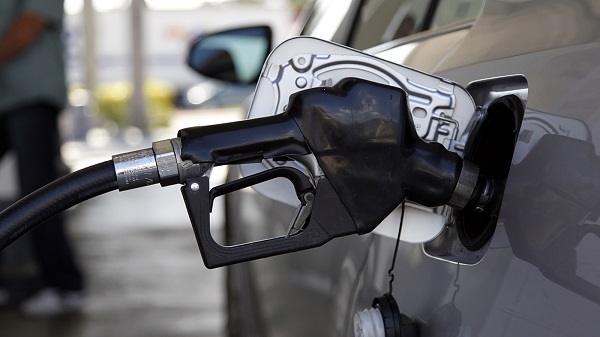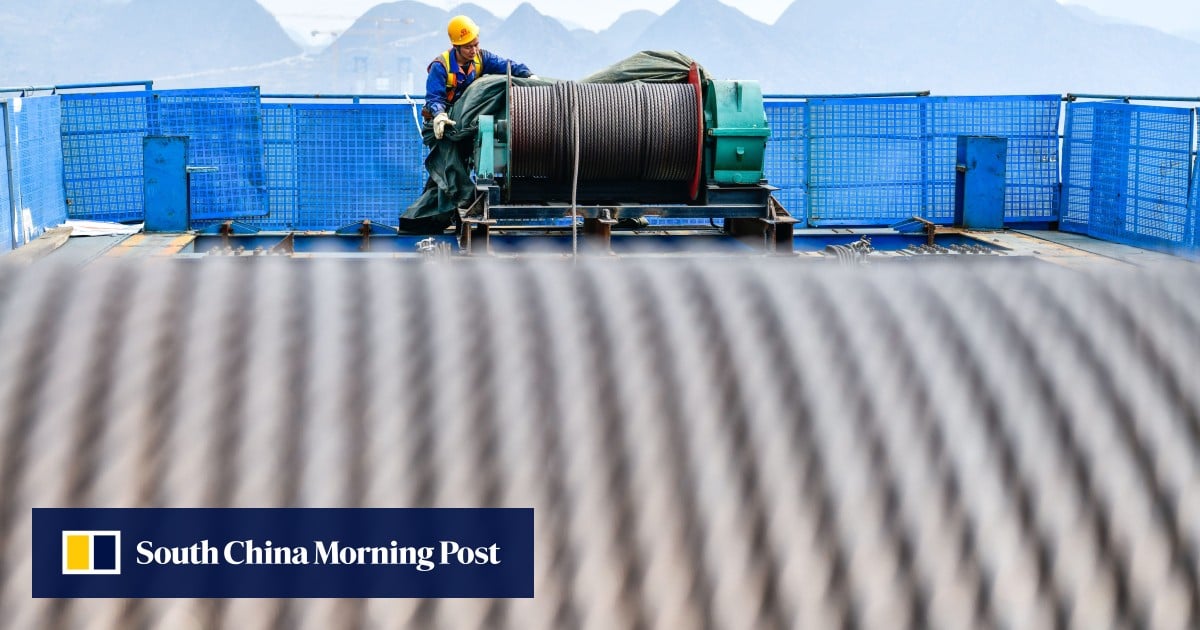India is facing a health crisis with a significant increase in non-communicable diseases such as cancer, diabetes, hypertension, and mental health disorders, making it the "cancer capital of the world," and highlighting the urgent need for increased health screenings and unified action to combat these diseases.

The departure of the Oakland A's baseball team from the Hegenberger business corridor is not only a blow to sports fans, but also a major economic setback for the already struggling area, with businesses increasingly leaving and job losses looming.

U.S. Treasury Secretary Janet Yellen is urging Chinese leaders to address excess industrial capacity and increase domestic demand, particularly in the green-energy sector, to avoid threatening jobs in the U.S. and other countries. Yellen discussed this issue during her meetings with Chinese Premier Li Qiang and Finance Minister Lan Foan, while addressing Chinese Commerce Minister Wang Wentao's objections to claims of excessive electric vehicle capacity.

Pakistan has been ranked in the low human development category, reflecting its declining state of education, health, and income, as well as its worsening human development indicators, with the country trailing far behind other South Asian economies.

Pakistan's Economic Policies Criticized for Disproportionately Benefiting Wealthy and Well-Connected
The current monetary and fiscal policies in Pakistan benefit the wealthy and exacerbate economic inequality, leading to challenges in financing for startups and small businesses, low returns on investments, and barriers to economic growth. Additionally, trade liberalization has inadvertently favored sectors with political ties, and certain special interest groups have received substantial subsidies and tax exemptions, further complicating the trade protection landscape. To revitalize the economy and reduce deficits, the Pakistani state needs to reduce its economic footprint, phase out subsidies, and liberalize the economy to allow for independent market development and reduced inflation.

The increase in electricity tariffs in Pakistan has not resulted in a decrease in circular debt, and instead has led to an increase in transmission and distribution losses and a decline in recovery rates, causing the debt to rise from Rs2.3 trillion to Rs2.6 trillion in just three months.

Pakistani parents are prioritizing the joy of their children during Eid despite the financial strain caused by rising inflation, high utility bills, and declining real income, leading to a significant increase in children's shopping expenses. The shrinking Eid economy, particularly affecting the middle and upper-middle classes, has led to a shift from custom-made to ready-made clothing and a decline in men's fabric and tailoring businesses. Bargain hunting in low-end markets and online shopping have become more popular, while the economic downturn has hit cities like Quetta the hardest. The Eid market is estimated to have contracted by at least 15% compared to last year. Unfortunately, public sector entities in Pakistan have not focused much on studying festival-specific spending.

The US Department of Homeland Security has announced measures to crack down on China's increasing import of low-value, small-package goods through the "de minimis exception," which allows duty-free imports of small packages valued at less than $800. The move is aimed at addressing concerns over forced labor, synthetic opioid fentanyl imports, and the use of the exception to circumvent tariffs on Chinese imports.

Japanese workers' real wages fell for the 23rd consecutive month in February, as consumer price growth accelerated, causing a drag on spending and potentially keeping the central bank on hold; however, there is hope that real wage growth will turn positive in the middle of this year due to significant wage gains from pay negotiations and a slowdown in inflation.

The space industry is projected to be worth $1.8 trillion by 2035, driven by increased connectivity, demand for positioning services, and advancements in AI and machine learning, with potential to address global challenges like climate change.

Nigeria's foreign exchange reserves have dropped by approximately $1.02bn in just 18 days, putting pressure on the reserve as efforts continue to stabilize the local currency, the naira. The decline in reserves is attributed to the Central Bank of Nigeria's interventions in the foreign exchange market to support the naira, including selling dollars to maintain liquidity. The IMF projects that Nigeria's reserves will further decrease to $24bn by 2024. The government plans to issue domestic bonds denominated in foreign currency in June to help stabilize the naira and the nation's reserve.

The Conservative Party is perceived as unlikely to cut taxes, with nearly half of voters still planning to vote for Labour even if the economy improves, according to a YouGov poll.

Rent in Britain is expected to increase by 13% over the next three years, outpacing wage growth, as the effects of the COVID-19 pandemic and housing crisis continue; the surge in rents has already surpassed previous records and is putting pressure on households.

The Bank of Canada is expected to keep interest rates unchanged, but analysts are watching for a shift in tone that could open the door to rate cuts over the summer.

China's rise as a global economic power poses challenges in terms of overcapacity and nationalism, and its ability to navigate the tensions with the West will determine its future trajectory, according to Joerg Wuttke, a top business leader and former president of the European Union Chamber of Commerce in China. He also highlights the importance of attracting foreign students and businesses to maintain an understanding and connection with China. Additionally, Wuttke suggests that China can learn from the experiences of other East Asian economies in managing economic shocks and reforms.

Climate change can weaken policy transmission and lead to tighter monetary policy due to frequent shocks to inflation, according to RBI's monetary policy report.

A recent poll shows that while people think the national economy is in bad shape, they feel positive about their personal finances, indicating a disconnect between economic sentiment and economic data.

The International Monetary Fund (IMF) is urging the government of Pakistan to increase the gas tariff for captive power plants in line with the price of Re-gasified Liquefied Natural Gas (RLNG) starting from July 2024.

Kaduna state plans to borrow its entire N150 billion budget from international sources, which would significantly increase its existing loan portfolio.
Texas Gov. Greg Abbott claims that the boost in the U.S. economy is due to the success of the Texas economy, not because of immigrants, despite recent data showing an increase in jobs and economic growth.

Preparations for the Eid Al-Fitr holiday are underway in Saudi Arabia, as families gather to buy clothes, sweets, and toys for the celebration.

The Nigeria Labour Congress is concerned about job security in light of the recent banks' recapitalisation initiative, as previous similar actions in 2005 and 2010 resulted in the termination of thousands of jobs. The Central Bank of Nigeria has mandated this new round of recapitalisation, requiring banks to meet increased capital requirements within a two-year timeframe.

A sick-note culture in Britain is contributing to the worklessness crisis, according to Charlie Mullins, founder of Pimlico Plumbers, who has called for a government-funded apprenticeship service to address the issue. Mullins stated that the country is too quick to write sick notes, leading to high levels of economic inactivity. He suggests that an apprenticeship scheme would provide opportunities for young people and give graduates a second chance. The government has introduced measures to encourage people back to work, but concerns have been raised about doctors signing people off sick without thorough assessment. Additionally, Mullins believes that a state-backed apprenticeship scheme would help tackle Britain's skilled labor requirements.

Nail salon prices in the UK are increasing on 8 April as nail technicians collectively raise their prices to ensure fair wages and sustainable businesses.

Mountain Valley Spring Water, a bottled water company in Arkansas, is experiencing inventory shortages and delivery delays due to a production interruption caused by a snowstorm two months ago, highlighting the potential impact of disruptions on goods and services. The author argues that the current higher prices in the economy are not inflation but rather a result of global shutdowns and disruptions in production. The rise in the price of gold suggests a decline in the value of the dollar, indicating actual inflation. Furthermore, the author questions the correlation between Federal Reserve actions and the value of the dollar, arguing that devaluation is a historical trend associated with government-issued money. As the value of the dollar declines, the author predicts a weaker economy and a shift towards hard assets as investments.

Italy's economy has recently performed relatively well compared to other eurozone countries, largely due to a surge in construction output driven by a tax incentive scheme, but its long-term prospects remain hindered by structural problems such as a declining workforce, low productivity growth, and a high government debt ratio.

The upcoming release of the US Bureau of Labor Statistics' CPI inflation numbers for March will be a significant data report with implications for financial markets, as it will be the first test of the "inflation bump" thesis, which suggests a resurgence of inflation or a second wave of inflation.

China's increasing economic influence in Russia's far-eastern region of Primorsky Krai raises strategic concerns and poses a challenge to local Russian dominance, as Beijing's territorial ambitions mirror Vladimir Putin's claims, leading to a complex interplay of mutual benefit and dependency.

Fuel prices in Ghana are expected to rise significantly in the coming weeks due to trends in the international market price, the performance of the Cedi, and the reversal of the petroleum levy, according to the Chamber of Petroleum Consumers. The increase in prices is the largest since February 2023, and consumers are anticipating higher costs as a result. The only way to alleviate the burden on consumers would be through tax reduction, but this is unlikely due to ongoing negotiations with the IMF.

The post-pandemic surge in immigration is believed to be a key reason why the U.S. economy has been able to grow steadily without driving up inflation, as new arrivals have helped fill job positions at pay levels that have kept prices from rising significantly, according to economists.

The US manufacturing sector expanded in March for the first time in 16 months, which could complicate the Federal Reserve's inflation fight and potentially lead to delayed or fewer interest rate cuts; however, some economists argue that the resurgence in the industry is a positive sign of economic strength.

Canada's unemployment rate rose to 6.1% in March, the biggest increase in two years, while the US reported a gain of 303,000 jobs for the same month.

Coca-Cola may be using "trickflation" to pass higher costs onto US consumers by selling the same amount of soda in a taller, slimmer can for a significantly higher price.

China's central bank will launch a 500 billion yuan ($70 billion) re-lending program to support the country's science and technology sectors, providing low-interest loans to small and midsize technology companies.

Former Federal Reserve Chair Ben Bernanke is expected to propose that the Bank of England (BOE) adopt a new forecasting process that includes flexible scenarios in an effort to update its forecasting process and repair its reputation after failing to predict inflation. This proposal is part of Bernanke's review of the BOE's forecasting methods and is expected to be released on April 12. The BOE's current forecasting process will likely be upgraded, and scenarios will replace the current "fan charts" in order to better communicate the different views held by BOE members.

Cash-strapped shoppers in Pakistan are struggling to buy commodities for Eid due to high prices caused by decades-long inflation and a severe economic crisis, with people reducing their purchases compared to last year, where they could only buy one item instead of four. The inflation rate is currently at 20.68%, and the International Monetary Fund has given Pakistan a $1.1 billion package to support its economy.

Kenya's public debt has exceeded the legal limit, rising by Sh860 billion within six months to reach Sh11.14 trillion, with 54.7% from external lenders and 45.3% in domestic debt, according to a report from the Office of the Controller of Budget. The growth in public debt strains revenue and calls for fiscal consolidation to curb further growth.

The article discusses why the economist Henry George, who advocated for the proper taxation of land, has been largely forgotten by mainstream economics, highlighting socio-political reasons and deliberate efforts by certain economists to remove his focus on land from economic reasoning.
The upcoming U.S.-China talks will address the Biden administration's concerns about Beijing's economic model and trade practices that put American companies and workers at a competitive disadvantage, according to U.S. Treasury Secretary Janet Yellen.

Hawaii residents pay 80% more than the national average to live there, with prices varying depending on the location, leading to higher costs for groceries and meals at restaurants.

S&P downgrades five regional banks due to their exposure to the troubled commercial real estate market, with M&T Bank facing the highest risk as it struggles to service over $33 billion in loans to the sector.

India's strong GDP growth projections and poverty reduction are overshadowed by challenges of unemployment and inequality, jeopardizing its goal of becoming a developed nation by 2047, according to a World Bank report that highlights the need for reforms to boost employment. The report also highlights the slow growth in employment due to lack of private sector investment, although the shift to services and the gig economy could potentially provide the needed job opportunities. However, ground reports indicate a post-pandemic decline in sustained, long-term jobs, impacting sectors like edu-tech and leading to job loss and sluggishness in the job market for even highly skilled individuals.

Liberty Power Holding is optimistic about its $125 million investment in Pakistan's power sector, banking on the nation's coal reserves and IMF-backed reforms to pay off.

Pakistan's exports to the United States have declined by 10.14% due to a decrease in textiles and clothing exports, while exports to China have increased by 42% and are expected to reach $3 billion by June, according to data from the State Bank of Pakistan.

Pakistan International Airlines (PIA) has accumulated liabilities of Rs830 billion and total assets of Rs171 billion, making it a unique and highly troubled company in the global aviation industry, with a significant disparity between its liabilities and assets. The privatization of PIA has been advocated as a solution to its financial woes and could serve as a signal of the government's commitment to economic reform, market-oriented economy, and fiscal responsibility, potentially attracting new investment and expertise.

Twitter, now X Corp, is facing court-ordered blockades of popular accounts in Brazil and potential revenue loss, prompting owner Elon Musk to challenge the orders and threaten office closures.

China's local government debt crisis, fueled by two decades of excessive infrastructure spending, is not only impacting private businesses but also contributing to a crisis of grassroots governance and distrust, according to an academic. This debt burden is eroding social trust and business confidence and calls for significant policy changes to address the issue.

Over 5,000 nail technicians in the UK are collectively raising prices on "National Nail Price Increase Day" due to low hourly earnings and rising costs of utilities and products.

Despite claims of poverty reduction, a recent study shows that income and wealth inequality in India has reached its highest levels in a century, with the top 1% holding 40.1% of the wealth, resulting in negative effects on growth, exclusion of others from competition, and limited provision of public goods. To address this, strategies for pro-poor growth, formal workforce expansion, progressive taxation, increased public expenditure, and action against ascribed inequalities should be implemented.

Japan's Mitsubishi Power is committed to supporting Saudi Arabia's growing demand for energy and providing state-of-the-art power technology solutions to help the kingdom achieve its Vision 2030 goals, including local talent development and industrial capacity building.
